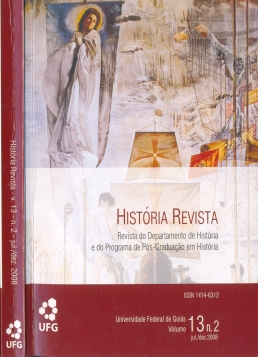LITERATURA E POLÍTICA: O LIBRO DE MANUEL DE JULIO CORTÁZAR
DOI :
https://doi.org/10.5216/hr.v13i2.6614Résumé
No romance Libro de Manuel, Julio Cortázar, apesar de preocupações com a forma, não deixou de assumir ou evidenciar um compromisso com a realidade social da América Latina. Nesse romance, publicado em 1973, num contexto de mea culpa e decepção com o processo revolucionário cubano, e, em geral, com as esquerdas, Cortázar entrelaçou e cristalizou diferentes reflexões e polêmicas que manteve com a intelectualidade latino-americana. Manifestou apoio à luta pela emancipação dos povos latino-americanos e, ao mesmo tempo, criticou as esquerdas, mostrando, até certo ponto, a incapacidade crônica dos revolucionários em elaborar e materializar uma autêntica e integral mudança social. O propósito deste artigo é, portanto, compreender as críticas de Cortázar às esquerdas latino-americanas e como ele conciliou, no Libro de Manuel, suas concepções políticas com suas concepções estéticas.
PALAVRAS-CHAVE: Julio Cortázar, Literatura, Política, Revolução Cubana, Libro de Manuel.
Téléchargements
Téléchargements
Publié-e
Comment citer
Numéro
Rubrique
Licence
Declaração de Direito Autoral
Concedo à História Revista o direito de primeira publicação da versão revisada do meu artigo, licenciado sob a Licença Creative Commons Attribution, que permite o compartilhamento do trabalho com reconhecimento da autoria e publicação inicial nesta revista.
Afirmo ainda que meu artigo não está sendo submetido a outra publicação e não foi publicado na íntegra em outro periódico, assumindo total responsabilidade por sua originalidade, podendo incidir sobre mim eventuais encargos decorrentes de reivindicação, por parte de terceiros, em relação à autoria do mesmo.



